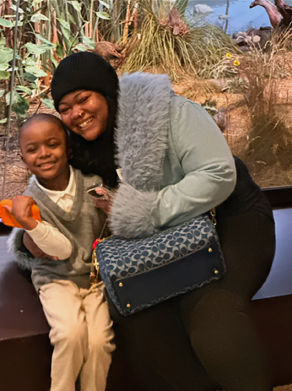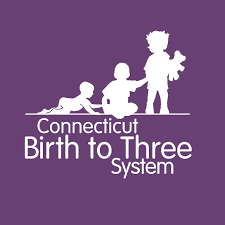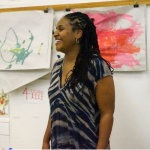Demystifying Autism: A Q&A With A Mom/Educator

Sparkler chatted with Shenell Samuels — a mom of a five-year-old with autism who is also a teacher in a school readiness program in Hartford who serves students with autism and other diagnoses — to share her experience and insights related to autism.
Could you tell us a little bit about your son?
My son is five years old. He was diagnosed when he was two and a half … We went through the Birth to Three process. They asked me if I wanted to do an evaluation because he wasn’t meeting his developmental milestones. So we did a whole evaluation. It took a few hours inside our home and they did diagnose him with autism.
What did it feel like as a parent to go through the process?
I was a bit confident because I knew I would know how to help him to get resources. And I was also a bit worried because it’s like: would he be able to talk, communicate, work with peers?
How would you describe early intervention to parents who aren't familiar with it?
My experience with Birth to Three was wonderful from start to finish … We set realistic goals for him to work on and she did help us a great amount coming to our home, working with him to get him where he needs to be … Early intervention played a huge part with him being open to the world.
What's your goal for your son now that he's five an in kindergarten?
My biggest goal would be to have a conversation with him, for him to be talking to me more. One day, I’d like for him to be able to join a sports team. And of course, I want him to graduate from high school and college, and of course regulating his emotions. He does have big emotions … Every day we’re working toward those bigger goals. We’re working on the small goals first to have him reach those. We have small goals we can reach while also keeping the big goals in mind.
What are some of the misconceptions you encountered?
Autism isn’t an illness. The biggest misconception is that he’s a sickly kid. He’s not sickly. There are some things he’s able to do and there are some things he’s not able to do.
It's interesting that you have encountered autism both as a teacher and as a mom. Can you tell us about your work?
I was going to school to be a nurse. I took a summer job working inside of a preschool for six weeks, and after that, they were like, “We want to hire you.” And then I worked my way up … Now I have my own classroom.
And you work with some students who have autism, like your son?
Yes. I have children on the same level, higher needs, and then some kids with moderate needs or not any at all. It’s a range.
How has being a parent of a child with autism influenced the way you interact with the parents and students who have different diagnoses?
It has given me the confidence to freely talk with parents … I’ll ask them, “What are you seeing at home with your child because at school I might be seeing something different?” If I’m concerned, I recommend that families go to their pediatrician and see what they recommend.
And how do you build a classroom environment that is inclusive of kids with different needs and abilities?
I talk with the kids. I’ll say, “Your friend might need a little bit of help. Can you help them?” I have materials in my classroom, sensory materials, that can help children who are on the spectrum be more comfortable in the classroom to help self-regulate. You know, just having book and reading to the kids can help … We’re not labeling children; everyone’s included. You know, we’re all like a family here.
Do you have any other advice for parents with questions/concerns about autism?
Don’t be afraid to ask for help. That’s the biggest thing. Don’t be scared. Don’t be nervous … Talk to your child’s pediatrician, talk to friends or family, just to gain more knowledge.
Information about Early Intervention in CT

Provide developmental evaluations, Autism assessments, and services for children under 36 months of age within the natural environment using coaching as a style of interaction to support families and caregivers to support their child’s development. Anyone can make a referral to Birth to Three, including parents and a referral is not required from a medical provider. Birth to Three, with permission, tries to access insurance but there are no additional cost to families, including if insurance does not contribute to the cost of services.When a family has a concern for Autism there are two different pathways a family can take for referrals to our system. They can begin with a general Birth to Three program, and if they would like, can request additional autism testing at any point within services. The second is to request a Birth to Three program that specializes in Autism at the time of the referral. When a Birth to Three program that specializes in Autism is requested, developmental testing is completed followed by an Autism assessment. Results of the Autism assessment are provided to families at that time. Throughout the process parents are a part of the decision making processes for what works best for their child and family. To learn more about Birth to Three services visit www.birth23.org.


